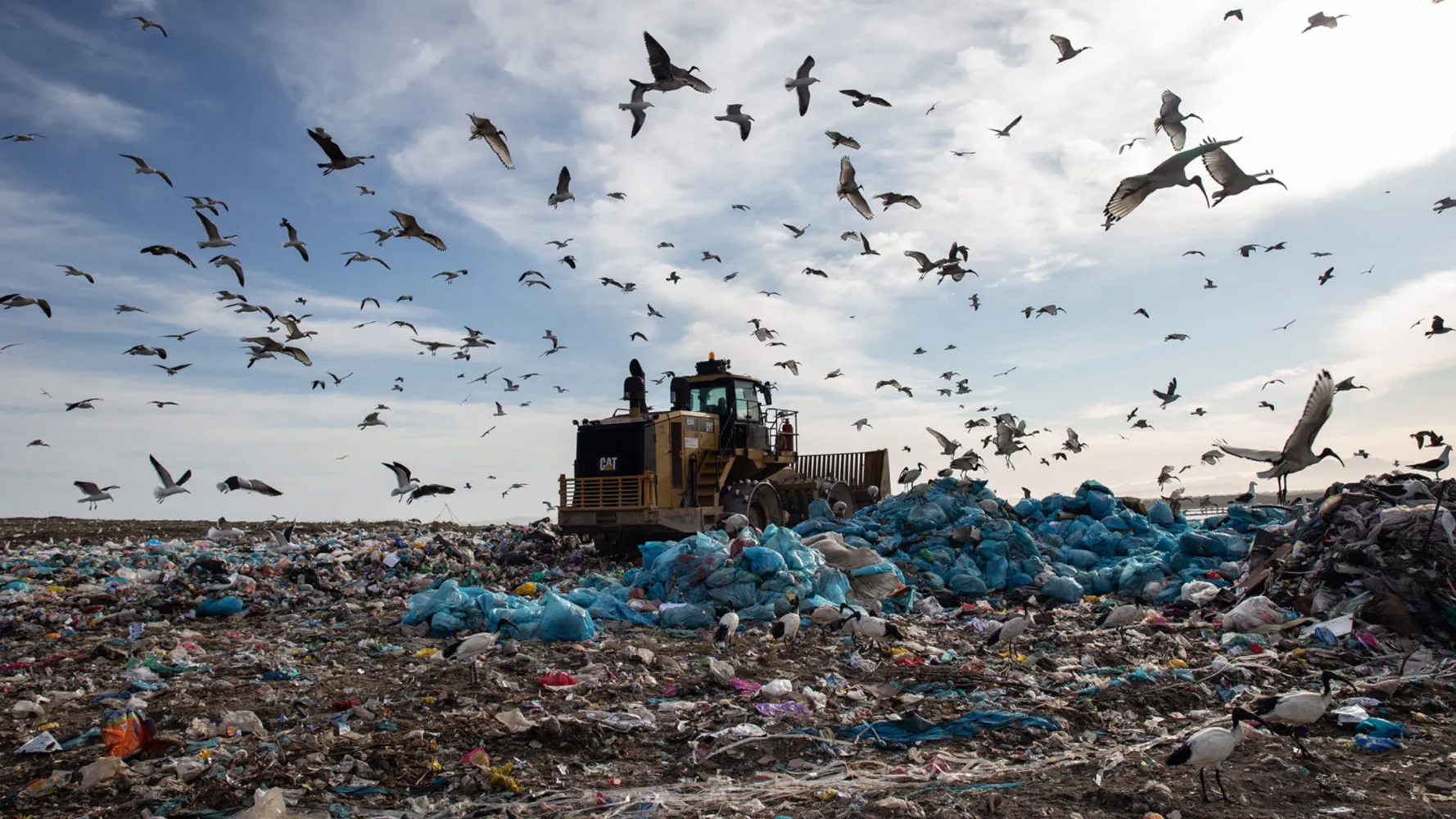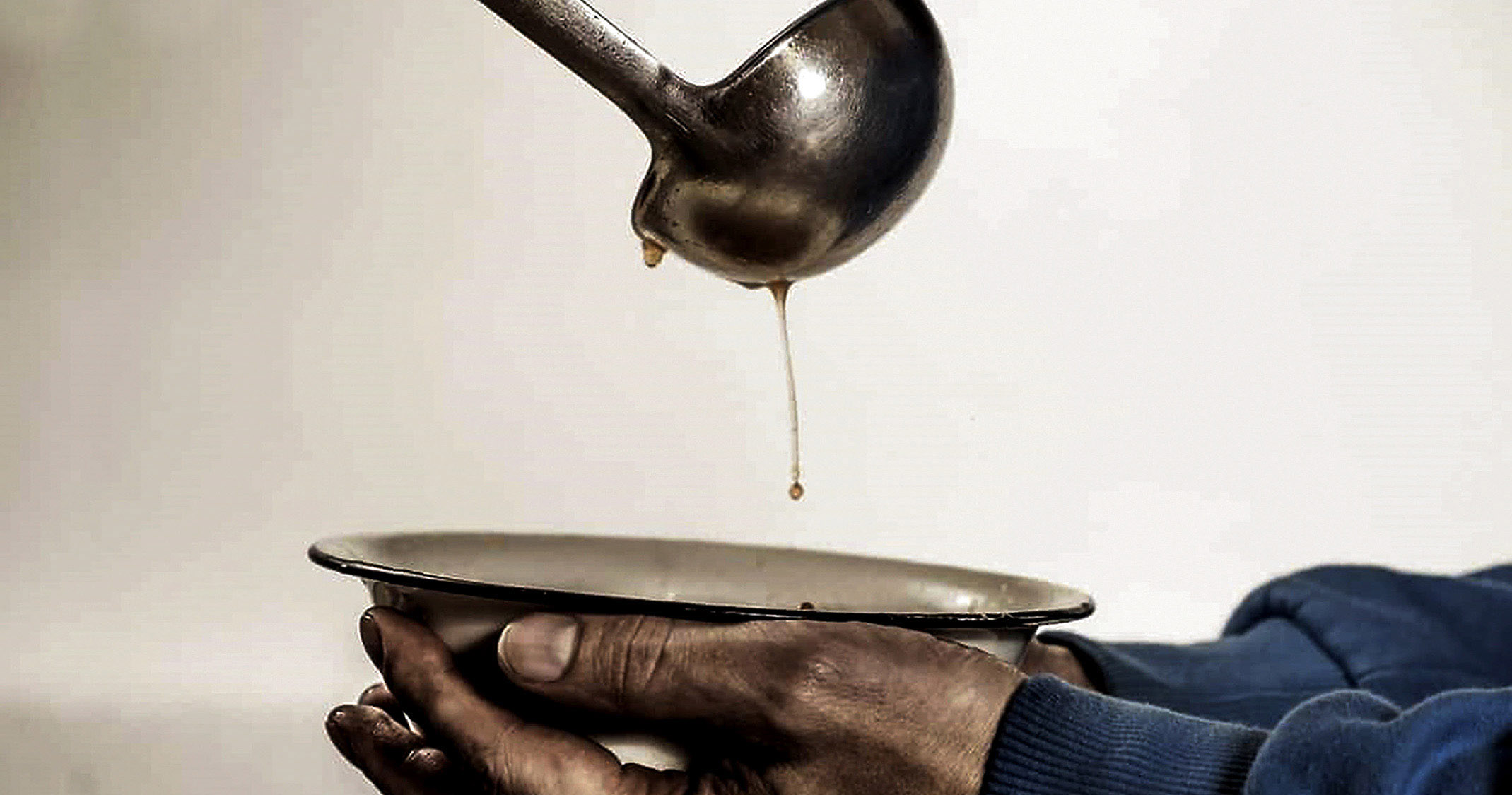More than one-third of all food produced in the world, and in South Africa, is never eaten. Yet 735-million people globally suffer from chronic hunger, and more than 3 billion people cannot afford a healthy diet.
Food loss and waste are not just harmful, causing 10% of all greenhouse gas emissions and 80% of deforestation, but are also inefficient, ultimately making food more expensive for consumers. Food systems as a whole cause 30% of global emissions.
Closer to home, at least one-third of South African households are food insecure, while one-third of the 31-million tonnes of food produced every year in South Africa (10 tonnes) ends up in a landfill. Wasted food incurs the costs of production, only to generate methane when it’s dumped, a greenhouse gas up to 80 times more potent than carbon dioxide at trapping heat.
 At least one third of South African households are food insecure, while one third of the 31-million tons of food produced every year ends up in a landfill. (Photo: Ashraf Hendricks)
At least one third of South African households are food insecure, while one third of the 31-million tons of food produced every year ends up in a landfill. (Photo: Ashraf Hendricks)
As recently as a year ago, there was little indication that government was doing anything to encourage food donations from producers to help feed the country’s hungry millions, nor to reduce South Africa’s waste “footprint” to meet the obligations of the United Nations’ Sustainable Development Goals for 2030. (Goal 12, on sustainable consumption and production, states that countries must halve their food waste at retail and consumer levels, and reduce food losses at every stage from harvest to wholesale.)
But in September, a “draft strategy” quietly emerged from the Department of Forestry, Fisheries and the Environment (DFFE) for public consultation, under the National Environmental Management Waste Act (Act 59) of 2008, in the name of Minister Barbara Creecy, Minister of Forestry, Fisheries and the Environment.
 (Photo: Waldo Swiegers/Bloomberg via Getty Images)
(Photo: Waldo Swiegers/Bloomberg via Getty Images)
The strategy invited public comment for just 30 days, and many food sector entities were not even aware it had been published. The DFFE subsequently extended the public comment period from October 19 to December 18.
The “draft strategy” - which is not a Green or White Paper, ie. not a precursor to a law - says it aims “to highlight the food losses and waste” along the entire food chain, to “contribute to the reduction of food wastage”. It discusses the adoption of new technologies, “circular economy” approaches (which it doesn’t spell out), improving food security, and reducing the negative environmental impacts associated with food losses and waste.
Though it details specific groups of actions, the timelines are vague (“2024/2025” or “2025/2026”). Examples of these actions relate to food redistribution and donation programmes, the consumption and marketing of “ugly” or imperfect food, the development of secondary markets for agricultural produce, and date labelling (ie. “use by” or “best before” dates).
At the moment, DFFE says, three-quarters of food lost and wasted happens before retail: 8.4 million tonnes, or 76%. This breaks down to 5.4 million tonnes in processing and packaging, 2.1 million tonnes in post-harvest handling and storage, and 0.9-million tonnes at primary-production stage. The other 24%, or 2.7 million tonnes, is made up of food wastage at wholesale, retail and consumer levels.
This translates into a shockingly high value in monetary terms: Net production value lost to food loss and waste at all stages of the supply chain, the DFFE says, was R115-billion in 2016 (outdated, but indicative), equivalent to 2.4% of South Africa’s GDP that year (R4.76-trillion).
But it is unclear, in the absence of introducing a legal mandate, how government is going to incentivise other government departments and the private sector to follow the strategy’s recommendations, how its impact will be monitored and measured, and how much impact it might have.
Comment from the trenches
“More urgency is needed here,” says Andy du Plessis, CEO of FoodForwardSA, a food-banking organisation that focuses on rescuing on-farm surpluses from landfill, and redistributes the fresh, nutritious food to non-governmental organisations that feed children, families and communities.
Du Plessis said the draft was a good starting point to bring together a broad range of people and organisations to tackle food loss and waste, that broad consultation was necessary to get people bought-in, and he commended bringing together many government departments to coordinate towards the same goal.
But, he said, the targeted food loss and waste reductions “are not firm targets and do not move fast enough to reduce food loss and waste ahead of the 2030 agenda” (the UN goals). He also suggested that government “present clear incentives to industry, like tax incentives and tax certificates that are clear” to encourage producers to donate surplus food.
Alan Browde, CEO and founder of food-rescue organisation SA Harvest, also expressed strong opinions about the draft strategy, saying government should take a much tougher stance, mandate by law what they think needs to be done, and bring all food policy under one roof into a single, dedicated ministry for food.
Browde’s SA Harvest distributes food that has been donated - according to their own strict safety and nutrition rules - from producer, retailer, restaurant, airline and event surplus. SA Harvest has provided 30 million meals nationwide to 40 vetted beneficiary organisations beneficiaries in three years.
“Given the absolute catastrophe on food in South Africa - hunger, malnutrition - you can’t have three different ministries controlling food [health, agriculture and the DFFE],” Browde told Daily Maverick. “You’ve got to bring it into one structure. If they can do it for electricity, when the biggest crisis in this country is food, surely they can do it for that?”
Browde described how the Garot Law, passed unanimously in France in 2016 and which forbids supermarkets from destroying unsold food products that could be donated to nonprofits, catalysed “a huge improvement” in reducing waste.
“They measured [supermarket chain] Carrefour against several UK retailers, before and after the law was introduced. After they’d passed the law, Carrefour rescued more food than the others put together.” Italy passed a similar law the same year.
Over the past decade, there’s been “a significant uptick in government action on food loss and waste” in countries around the world, Global FoodBanking Network CEO Lisa Moon said at COP28.
“The government has to make food waste illegal,” Browde said. “They have to have a carrot-and-stick approach to this.”
https://www.dailymaverick.co.za/article/2023-12-15-help-daily-maverick-and-sa-harvest-put-meals-on-the-table-of-hungry-families-this-holiday-season/
The Netherlands, Japan, South Korea and the United Kingdom are other countries that have made meaningful reductions in food waste, with the UK decreasing edible food waste by 27% between 2007 and 2018. Multinational food producers Kellogg’s, Grupe Bimbo and Tesco have also reduced their losses and waste by 30%, says ReFED, a US-based nonprofit that promotes food-waste solutions.
Who is responsible?
The DFFE strategy says it will “be applicable for implementation” to “all organs of the state that have a responsibility for waste management”, and to private sector and civil society organisations, academia and research institutions “that are involved in, and constitute the waste management sector”, as well as in environmental awareness, sustainability and sustainable development.
Daily Maverick asked the DFFE if the draft strategy was intended as a first step towards a law on food loss and waste, and why the initial comment period had been so short, but had not received a reply by the time of publication.
Matlou Setati, Executive of the Food Safety and Sustainability Initiative at the Consumer Goods Council of South Africa (CGCSA), told Daily Maverick that they would only be able to provide comment on a “consolidated industry view” after the comment period had closed.
“The deadline for responding to the draft regulations was extended to 18 December 2023 to allow more time for detailed submissions,” Setati said via email. “Suffice to say that the CGCSA in principle supports efforts at industry and national level to reduce food loss and waste from farm to the dinner table, in line with the UN goals of halving food waste by 2030. The CGCSA is pleased to say that its members are far ahead of the national strategy through the implementation of the food loss and waste initiative, which it launched in September 2020.”
SA Harvest’s Browde believes that government should take more responsibility for intervening in the food chain, describing the damage done to the food chain by “a kind of libertarian capitalism”, Browde called it, post-democracy, when government market interventions such as protecting small-scale farmers, to meet the conditions set by the World Bank and other funders of lending billions to South Africa.
“But they threw the baby out with the bathwater,” Browde said. “In that system, the strong get stronger, the rich get richer and, as we know now, our retail sector completely owns and controls the food chain, and 96% of our people have to buy food from retailers after the fifth or sixth margin” (after five or six markups in price), which hurts both the farmer and the consumer.
“So, when you add all these things together,” Browde said, “there’s a possibility that just through preventing food waste, controlling prices, making things more affordable, and ensuring that the food waste is redistributed through organisations like SA Harvest and FoodForward SA then we could really come very close to solving the problem.” DM
Adèle Sulcas is a writer and Editorial Adviser for Daily Maverick’s #FoodJustice project, and a consulting editor for Wits University’s SA MRC Centre for Health Economics and Decision Science.
https://www.youtube.com/watch?v=REeWvTRUpMk




 (Photo: Waldo Swiegers/Bloomberg via Getty Images)
(Photo: Waldo Swiegers/Bloomberg via Getty Images) 